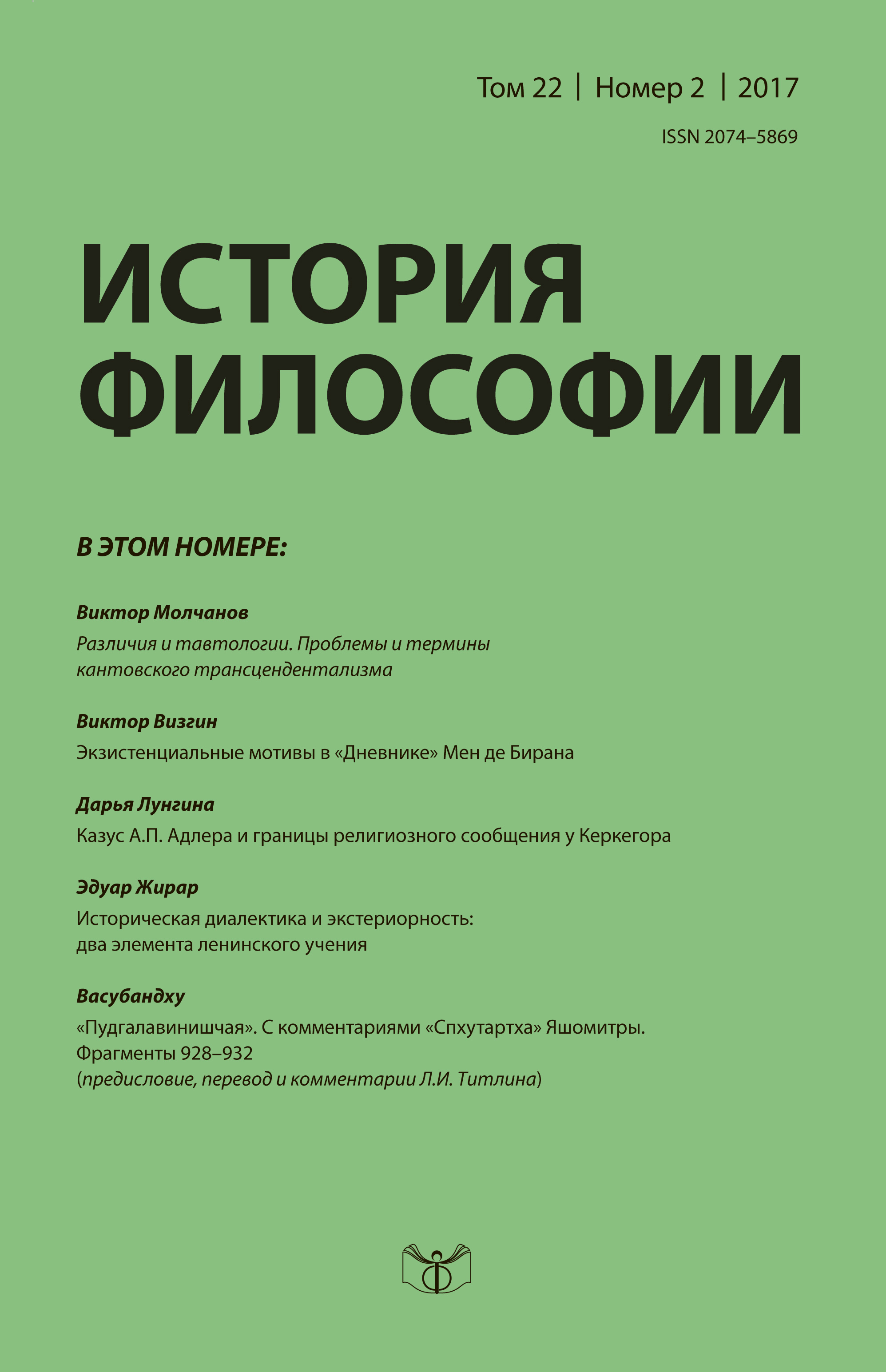Historical Dialectics and Exteriority: Two Elements of Lenin’s Teaching
Keywords:
dialectics, history, morality, German idealism, revolutionary, socialism, heuristicsAbstract
To read Leninism as a doctrinal corpus presents a test for our philosophical sensibility. This challenge to our reading is not, however, caused by the theory itself; quite to the contrary, it is the result of an overabundance of considerations which are external to it: the political history of the Soviet Union, Lenin’s biography stretched as far as psychological analysis, all so many parasites of thought that distort our understanding of the text. The spirit of philosophy is refused to the Leninist corpus, because Lenin is seen as having sinned against philosophy itself. We are incapable of stepping outside of either the “orthodox” reading of Leninism or its “anti-totalitarian” counter-reading. Caught in this vice, commentators must operate under the yoke of a moralism dictating that a side must be chosen: for or against Leninism, to be decided prior to any cursory reading. Faced with this impasse, it seems necessary to return to the roots of this impossible exegesis. How can Lenin’s doctrine be brought back into the fold of our philosophical sensibility? How can the prickly issue of Leninism’s inherent, subjective morality be correctly handled? How can this subjective morality be connected to a teleological conception of History? Which heuristic is still open to us in deepening our understanding of the great revolutionary’s thought? Attempting to answer these questions is the goal of the present paper.

